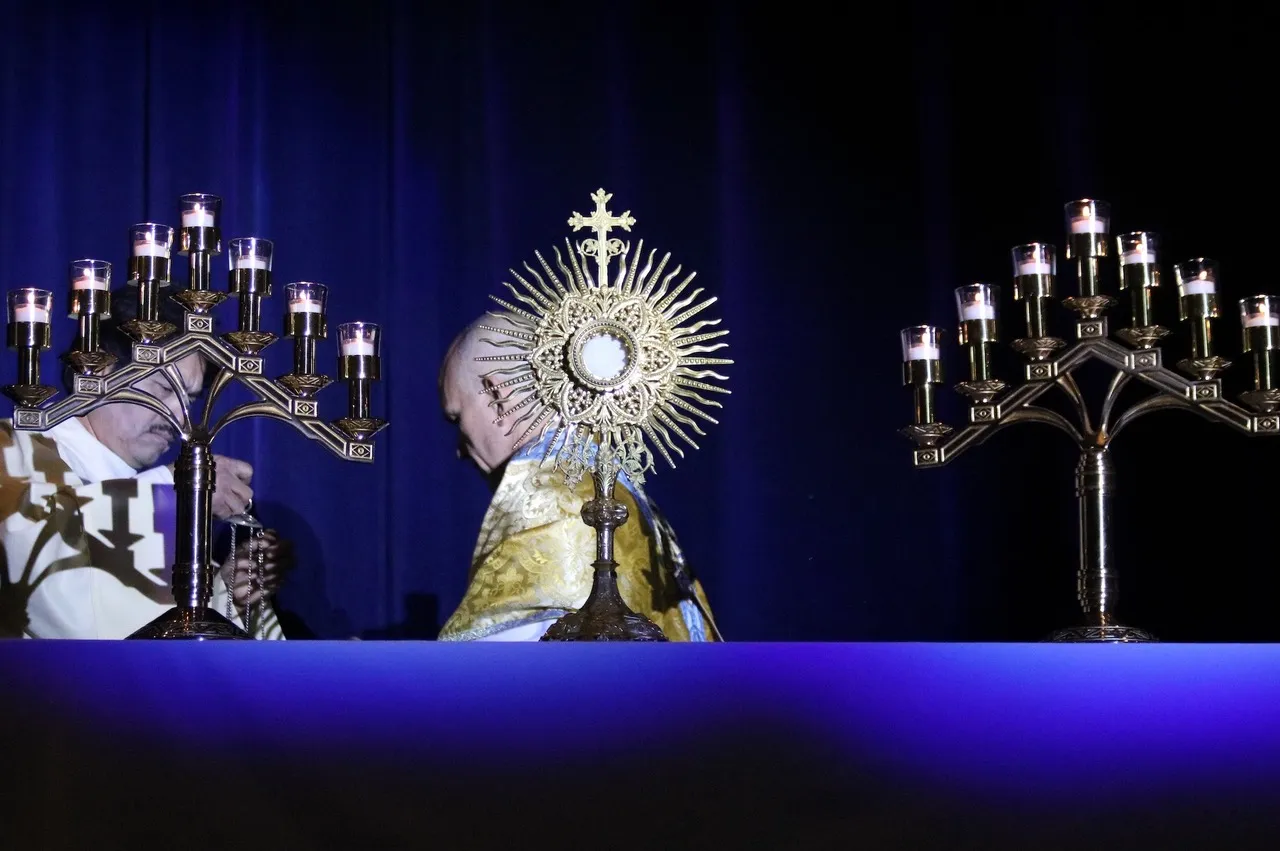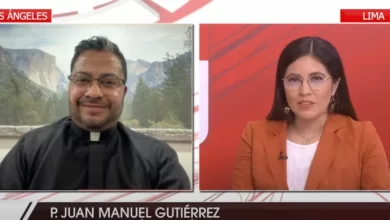National Conference for Single Catholics promises to deepen faith, foster relationships
Ann Arbor, Michigan, Jul 20, 2024 / 06:00 am (CNA).
The upcoming 2024 National Conference for Single Catholics promises to embolden the faith of participants who, as single people, seek to discover through fellowship a deepened relationship with Christ the bridegroom — and perhaps even a like-minded spouse.
Anastasia Northrop, who started the annual event more than 20 years ago, told CNA that it provides practical aids for growing in faith and forming lasting relationships.
This year, the conference will be held Aug. 16–18 in Las Vegas and feature opportunities for worship, prayer, and sacraments but also dancing, socials, and exhibits.
“There was a template for dating in my grandparents’ time, but now there isn’t because of the hookup culture and everything. So good Catholics ask, ‘How do I date? How do I have a relationship?’ They want a practical instruction manual about how to go about it,” Northrop said.
Featured speakers for the conference this year are Christin Jezak, Matt Ingold, and Marilyn Sherman.
Jezak is an actress, producer, and playwright featured in “Confessions of a Catholic Single” — a recorded comedy podcast — and produced the “For the Sake of the Gospel” TV program for EWTN.
Ingold graduated from the U.S. Naval Academy and served two overseas tours with the Marine Corps. He co-hosts Catholic Coaching Podcasts and co-founded Metanoia Catholic to lead Catholics in team building and a greater purpose and meaning with God.
Sherman is the author of motivational books such as “Why Settle for the Balcony: How to Get a Front-Row Seat in Life” and a frequent keynote speaker.
Previous speakers have included Preacher of the Papal Household Father Raniero Cantalamessa, co-founder of the Theology of the Body Institute Dr. Christopher West, author/motivational speaker Matthew Kelly, and Father Thomas Loya, a priest of the Byzantine Catholic Eparchy of Parma, Ohio, and proponent of the theology of the body propagated by St. John Paul II. Eminent churchmen including Archbishop Charles Chaput, OFM Cap, archbishop emeritus of Philadelphia; Los Angeles Archbishop José Gomez; and Archbishop William Skurla of the Byzantine Catholic (Ruthenian) Metropolitan Church are supporters of the conference.

Northrop said that through her parents’ Catholicasts apostolate, she was exposed to John Paul II’s theology in 1999 and started working with West and other speakers.
“We started a study group because I wanted to see what the pope actually said. I really got into it and really loved the message and how it got to the root of who we are as human beings,” she said.
Five years later, after recognizing that there was little attention given to single Catholics beyond their 20s, the first conference kicked off in Colorado and attracted more than 400 participants.
Since then, conference participants have come from all 50 states of the U.S. as well as Canada, Mexico, and from as far away as the Philippines and Europe.

While the conference may bolster parishes’ outreach to singles seeking to marry, Northrop said, “this conference isn’t really about matchmaking. It’s a big retreat for single Catholics and the whole person to help us be who we are created to be and live fruitfully in the present moment and then hopefully prepare for vocation, whether to marriage or religious life or stay single. It does take some pressure off the participants. The outcome might not be marriage or to meet your future spouse, but if you’re single and you’re Catholic and want a Catholic spouse, it’s a very logical place to go.”
Northrop said that at the coming conference, participants will find their faith strengthened and will “meet other people that are also seeking to live their faith, and so it’s a very encouraging atmosphere. Even if you go alone, you can start talking to a few people and feel like you have new friends right away. It’s good to know that you’re not alone.”
The Church’s focus on marriage is “super-important,” Northrop said. “In a sense, we are in the midst of a culture war. The fallout is lack of people to marry who are serious about their faith, well-formed for marriage and family life. So as a single person, there is a fine line where God has us at the moment and being prepared as we can be for marriage or a religious vocation.”
She also added: “Sometimes singles can feel a little bit left out and that their needs aren’t being addressed. They might feel invisible, even though they may be serving as a parish secretary, teaching catechism, or volunteering in pro-life ministry. I’m not sure why that is, but I think sometimes it takes a while for people in the Church to realize this.”

Paraphrasing St. John Paul II, she said: “Man is the only creature on earth willed for itself and he cannot fully find himself except through a sincere gift of himself. That’s what the theme of the conference is. We’re called to make a gift of ourselves at every stage and state of life and so even while we’re single and not living that gift of self in marriage or that total gift of self in the religious life or consecrated vocation, we can still make a gift of ourselves in our daily lives.”
She said that while numerous people have met their spouses at the conference and are now happily married, “I think it’s better to go with the expectation that you learn more about [the] faith and learn about relationships.”
“The single life itself is not a vocation. We all have a baptismal vocation, a consecration, which in the terms of St. John Paul II is a vocation to love,” she said. “Consistent charity is the definition of holiness: union with God through charity. God has a particular calling for each of us. Being single is the default state; we are born single. In marriage we make a total gift of self throughout the rest of our lives; in a celibate vocation we make a total gift of self to God and the Church. As a single person, I don’t think it’s comforting to be told that being single is a vocation, too. I might think that I am stuck in a state that I haven’t chosen.”
“To focus instead on my baptismal vocation to love is much more fruitful because we can do that in our daily lives and make a difference in the Church through volunteer work, supporting our families,” she continued. “If you have nieces and nephews, you can babysit and give their parents a date night. By fostering those relationships, in community, we can find fulfillment.”

As for the coming conference, Northrop concluded that if participants go to learn more about relationships and their Catholic faith, “they will also meet hundreds of other wonderful people that are also seeking to live their faith. If you go with that expectation, your expectations will be fulfilled.”






